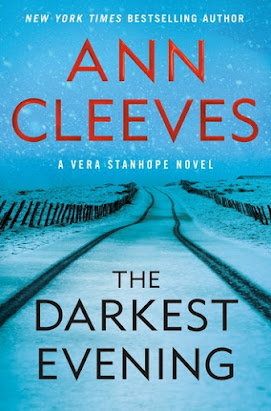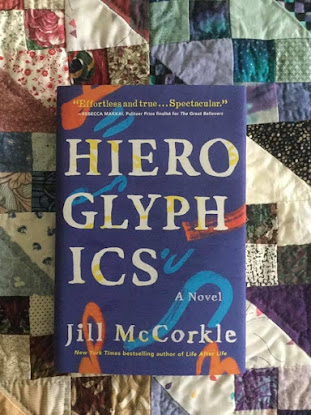Like millions of others, I watched the 1981 Great Performances television series of Brideshead Revisited--several times--and read the paperback published at that time.
Little, Brown and Company has reissued a 75th anniversary edition of the novel and I used this as an excuse to revisit Waugh's book.
I loved the nostalgia and longing regret for lost places and relationships. But the novel is not just a romance, or the story of a young man's first love and glimpse into another world.
The story opens during WWII in England. A disillusioned, thirty-nine-year-old Capt. Ryder and his platoon have been moved to a new location, which he recognizes as the home of his college friend.
I had been here before; I knew all about it, Ryder thinks about Brideshead. The book goes on to tell the events of twenty years ago.
Book I, Et in Arcadia Ego, begins with a flashback to Ryder's first view of Brideshead in the company of his Oxford friend Sebastian Flyte, who became Charles's first love. It is never quite clear the nature of that love. At Oxford, Charles notices Sebastian for his 'arresting' beauty and his eccentricities, including carrying a teddy-bear. "Sebastian takes Charles into his circle of friends, indulging in high-spirited (and drunken) adventures. One friend warns Charles about the Flyte family, including that Sebastian's parents live apart, but his mother's faith does not allow for divorce.
Charles's mother is dead and his father is self-involved and distant. Sebastian takes Charles to Brideshead to meet Nanny Hawkins, who still lives in the nursery, then Charles away before his family arrives, warning, "I am not going to have you get mixed up with my family. They're all so madly charming. All my life they've been taking things away from me."
Their second year at college, they become mutually exclusive in their friendship, but by the end of the year, their relationship comes to a break and they go their separate ways, Charles to art school against his father's wishes, while Sebastian's alcoholism brings a schism between him and his family.
Charles rejection of the Brideshead's Catholicism also plays a part in the break. He is agnostic with a Protestant background. The Catholic faith is pure superstition to him. Sebastian's mother is devout, but is separated from her agnostic husband who lives abroad with a mistress. The elder Brideshead son wishes for a calling. The youngest daughter has faith, but not daughter Julia. Julia tells Charles that Sebastian has a calling, but flees from it.
Charles becomes an artist specializing in architecture and marries. Years later he and Sebastian's sister Julia fall in love and have an affair. They are waiting for their divorces to come through when the Brideshead patriarch returns to die in the family home.
The family bickers over whether to bring a priest to their father's death bed; his death-bed conversion leads Julia to give up Charles for God.
The last scene finds Charles in the Brideshead chapel, the eternal flame of faith burning, saying an ancient prayer.
Waugh wrote that "the whole thing is steeped in theology, but I begin to agree that theologians won't recognize it," and "the book is about God." Waugh even considered changing the title to "A Household of Faith."
Before he left for Oxford, Charles was given advice, including to avoid Anglo-Catholics, "they're all sodomites." Charles struggles to understand the Flyte's Catholic faith. "Sebastian's faith was an enigma to me at that time," Charles says, adding "I had no religion." Although he had gone to church as a child, and "the masters who taught me Divinity told me that biblical texts were highly untrustworthy. They never suggested I should try to pray." He thinks about his devout mother died as a nurse volunteer during the war and recognizes he did inherit "some such spirit." "I have come to accept claims which then, in 1923, I never troubled to examine, and to accept the supernatural as the real."
He recounts a conversation with Sebastian who affirmed his simple faith and awareness of being "much wickeder." Charles is baffled. "...if you can believe all that and you don't want to be good, where's the difficulty about your religion?" he asks.
Sebastian also recounts his family's "mixed" attitude toward faith, noting "happiness doesn't seem to have much to do with it, and that's all I want." But his pursuit of happiness makes him miserable. He takes up an unworthy, needy soul to care for, as if in penance, or perhaps longing for love or companionship. In the end, he finds a home with monks who forgive him his alcoholism.
Julia's sudden change, the awareness that her faith does not recognize her divorce, ends any chance for happiness for Charles or herself. In his misery, somehow faith also comes to Charles.
It is a beautifully written last scene, Charles in the room that was built to be the Brideshead chapel, the lamp still burning above the altar. What the chapel and the flame represented had outlasted the human tragedies of time and history,something eternal that Charles could turn to. He is rejuvenated just by being there and reciting "a prayer, an ancient, newly-learned form of words."
The moving and hopeful ending, Captain Ryder experiencing the sacred, is satisfying and uplifting.
Brideshead Revisited: The Sacred and Profane Memories of Captain Charles Ryder
by Evelyn Waugh
Little, Brown & Co
paperback
ISBN0316242101 (ISBN13: 9780316242103)
from the publisher
The gorgeous 75th-anniversary edition of Brideshead Revisited, the novel selected by Modern Library as one of the 100 best of the century.
The wellsprings of desire and the impediments to love come brilliantly into focus in Evelyn Waugh's masterpiece—a novel that immerses us in the glittering and seductive world of English aristocracy in the waning days of the empire.
Through the story of Charles Ryder's entanglement with the Flytes, a great Catholic family, Evelyn Waugh charts the passing of the privileged world he knew in his own youth and vividly recalls the sensuous pleasures denied him by wartime austerities. At once romantic, sensuous, comic, and somber, Brideshead Revisited transcends Waugh's early satiric explorations and reveals him to be an elegiac, lyrical novelist of the utmost feeling and lucidity.







































